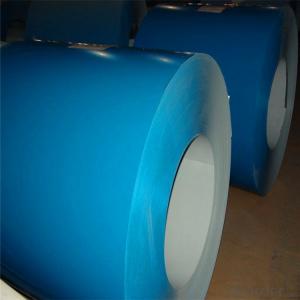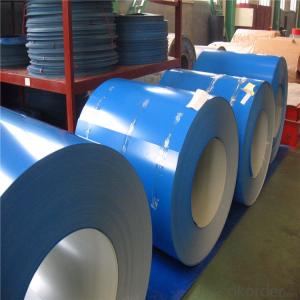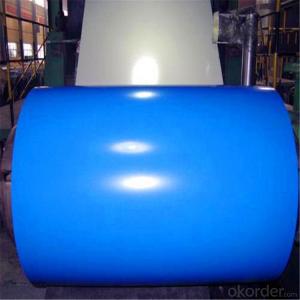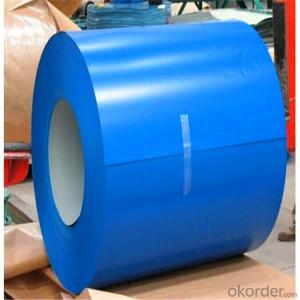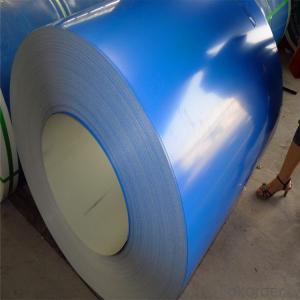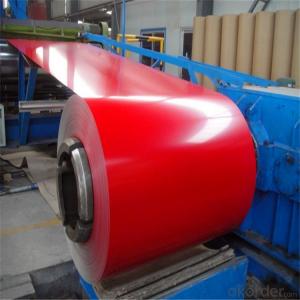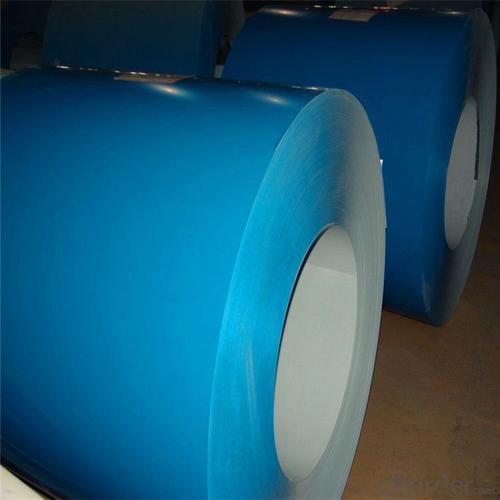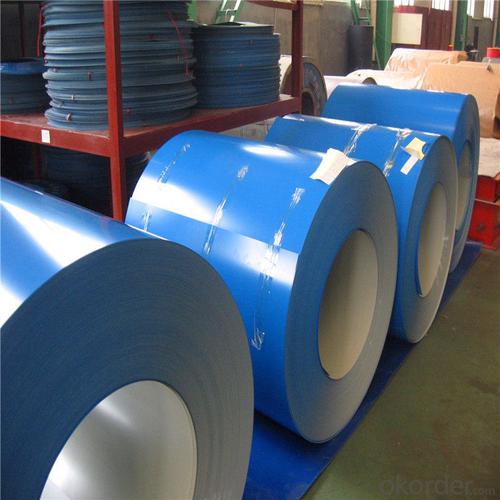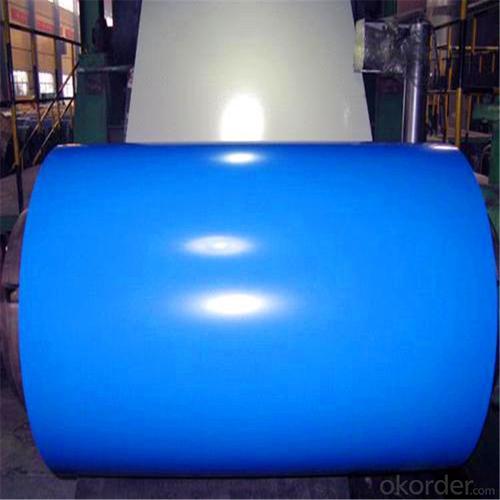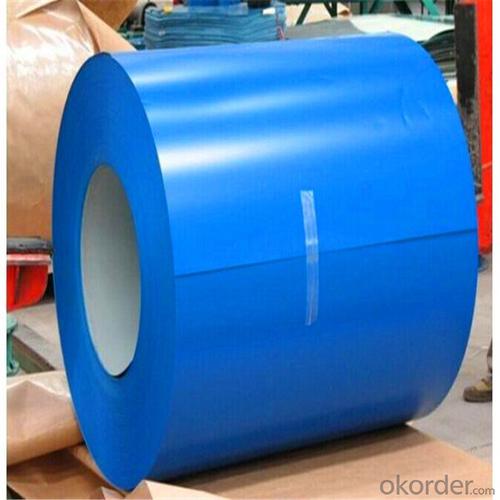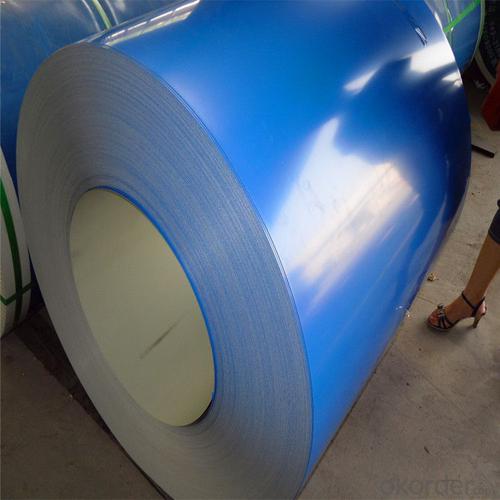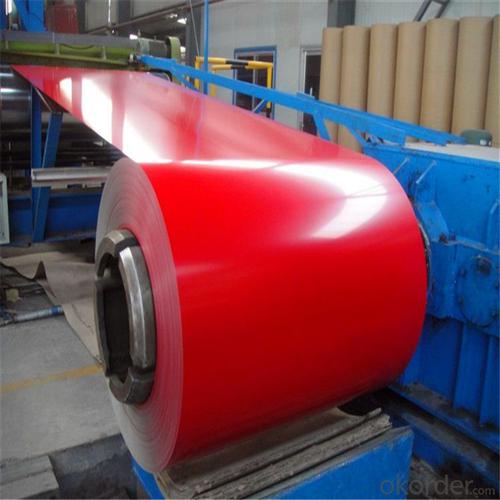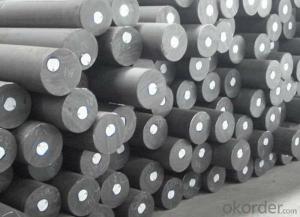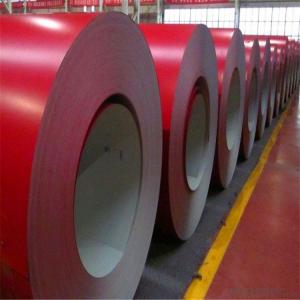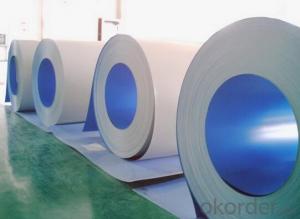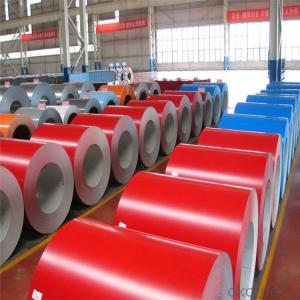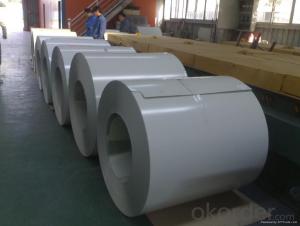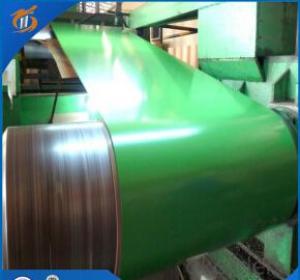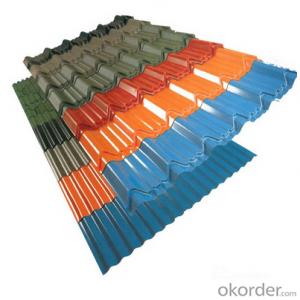Color Coated PPGI Ral 9012 for Construction
- Loading Port:
- Tianjin
- Payment Terms:
- TT or LC
- Min Order Qty:
- 25 m.t.
- Supply Capability:
- 5000 m.t./month
OKorder Service Pledge
OKorder Financial Service
You Might Also Like
Specification
Color Coated PPGI Ral 9012
Description of Color Coated PPGI Ral 9012
Product | PPGI/PPGL |
Capacity | 5,000 tons/month |
Base material | Hot dipped galvanized steel |
Thickness | 0.2-2.0mm |
Width | 600-1250mm(according to your need) |
Coil Weight | 3-6tons |
Quality | SGCC, DX51D |
Color | RAL No. or customers samples’ color |
Zinc-coating | 30g/m2-180g/m2 |
Coil ID | 508mm/610mm |
Technique | Cold rolled—hot dipped galvanized—color coated |
Painting | Top painting:15~25μm |
Back painting: 6~10μm | |
Tolerance | Thickness: +/-0.02mm |
Width:+/-2mm | |
Shipment time | within 15-45 workdays |
Payment | T/T, L/C at sight |
Packing | Standard export packing |
The special order can be negotiated. | |
Application of Color Coated PPGI Ral 9012
APPLICATION OF OUR PREPAINTED STEEL | ||||||||||
Construction | Outside | Workshop,agricultural warehouse,residential precast unit | ||||||||
corrugated roof,roller shutter door,rainwater drainage pipe,retailer booth | ||||||||||
Inside | Door,doorcase,light steel roof stucture,folding screen,elevator,stairway,ven gutter,Construction Wall | |||||||||
Electrical applicance | Refrigerator,washer,switch cabnet,instrument cabinet,air conditioning,micro-wave owen,bread maker | |||||||||
Fuiniture | Central heating slice,lampshade,chifforobe,desk,bed,locker,bookself | |||||||||
Carrying trade | Exterior decoration of auto and train,clapboard,container,isolation lairage,isolation board | |||||||||
Qthers | Writing panel,garbagecan,billboard,timekeeper,typewriter,instrument panel,weight sensor,photographic equipment | |||||||||
Products Show of Color Coated PPGI Ral 9012

Product Advantages
1.With nearly 20 years experience in prepainted steel, accommodate different marketdemands. | ||||||||||||||
2.'Quality first, service first' is our business aim; 'The good faith get respect,cast quality market' is our Business philosophy . | ||||||||||||||
3.Having two series producttion line,with the abbual production capacity of 240000 tons. | ||||||||||||||
4.Exceed International ISO9001:2008&ISO14001:2004 quality and environmental standards | ||||||||||||||
5.Meet with ROHS standard |
Company Information
CNBM International Corporation is the most important trading platform of CNBM group.
Whith its advantages, CNBM International are mainly concentrate on Cement, Glass, Iron and Steel, Ceramics industries and devotes herself for supplying high qulity series of refractories as well as technical consultancies and logistics solutions.


F A Q
1, Your advantages?
professional products inquiry, products knowledge train (for agents), smooth goods delivery, excellent customer solution proposale
2, Test & Certificate?
SGS test is available, customer inspection before shipping is welcome, third party inspection is no problem
3, Factory or Trading Company?
CNBM is a trading company but we have so many protocol factories and CNBM works as a trading department of these factories. Also CNBM is the holding company of many factories.
4, Payment Terms?
30% TT as deposit and 70% before delivery.
Irrevocable L/C at sight.
5, Trading Terms?
EXW, FOB, CIF, FFR, CNF
6, After-sale Service?
CNBM provides the services and support you need for every step of our cooperation. We're the business partner you can trust.
For any problem, please kindly contact us at any your convenient time.
We'll reply you in our first priority within 24 hours.
- Q: How does special steel perform in cryogenic ductility?
- Special steel generally performs well in cryogenic ductility. Cryogenic ductility refers to the ability of a material to maintain its strength and flexibility at extremely low temperatures. Special steels are often specifically engineered to withstand harsh conditions, including cryogenic temperatures, making them suitable for use in applications such as liquefied natural gas (LNG) storage tanks, aerospace components, and superconductors. One of the main reasons special steel excels in cryogenic ductility is its composition. Special steels are typically alloyed with elements such as nickel, chromium, and molybdenum, which enhance their mechanical properties and resistance to low temperatures. These alloying elements provide special steel with increased strength, toughness, and resistance to brittle fracture, even in extremely cold environments. Furthermore, special steels undergo rigorous testing and quality control measures to ensure their performance in cryogenic conditions. This includes testing for parameters such as impact toughness, fracture toughness, and notch toughness, which are crucial for evaluating a material's ability to resist brittle failure at low temperatures. In addition to its composition and testing, the manufacturing processes used for special steel also contribute to its excellent cryogenic ductility. Special steels are often produced using methods like vacuum induction melting and controlled cooling, which help eliminate impurities and improve the material's microstructure. This refined microstructure enhances the steel's ductility, allowing it to maintain its mechanical properties even at cryogenic temperatures. Overall, special steel demonstrates exceptional performance in cryogenic ductility due to its carefully designed composition, stringent testing, and advanced manufacturing processes. These factors make it a reliable and preferred choice for various industries that require materials to withstand extreme cold conditions while maintaining their strength and flexibility.
- Q: What is the impact of titanium in special steel alloys?
- Titanium has a significant impact on special steel alloys as it improves the strength, corrosion resistance, and heat resistance of the resulting material. It also helps in reducing the weight of the alloy while maintaining structural integrity, making it ideal for applications in aerospace, automotive, and medical industries.
- Q: What are the specific requirements for special steel used in the mining industry?
- Special steel used in the mining industry has specific requirements to ensure its durability, strength, and resistance to harsh conditions. Some of the key requirements for special steel used in the mining industry include: 1. High strength: Special steel used in the mining industry must have high tensile strength to withstand heavy loads and resist deformation under extreme conditions. This enables the steel to endure the pressure, impact, and stress that it may encounter during mining operations. 2. Wear resistance: Mining environments involve abrasive materials, such as rocks and ores, which can cause significant wear on equipment. Special steel used in the mining industry needs to have excellent wear resistance to prevent premature failure and increase the lifespan of mining equipment. 3. Corrosion resistance: Mining operations often take place in highly corrosive environments, such as underground mines or near water bodies. Special steel used in the mining industry should possess high corrosion resistance to withstand exposure to chemicals, moisture, and other corrosive agents. This helps prevent rusting, pitting, and other forms of corrosion that can weaken the steel. 4. Toughness: Mining equipment is subjected to heavy impacts and vibrations, which can lead to fractures if the steel is not tough enough. Special steel used in the mining industry should exhibit excellent toughness, allowing it to absorb energy from impacts and vibrations without fracturing. This ensures the safety and reliability of mining equipment. 5. Heat resistance: Mining operations involve high-temperature environments, such as smelting and refining processes. Special steel used in the mining industry must have good heat resistance to withstand the elevated temperatures without losing its strength or undergoing deformation. 6. Machinability: Special steel used in the mining industry should also have good machinability, allowing it to be easily formed into complex shapes or structures. This facilitates the manufacturing process of mining equipment and components. Overall, the specific requirements for special steel used in the mining industry revolve around strength, wear resistance, corrosion resistance, toughness, heat resistance, and machinability. Meeting these requirements is crucial for ensuring the reliability, durability, and safety of mining equipment in the demanding mining environments.
- Q: What are the main applications of special steel in the defense aircraft?
- Special steels are used in defense aircraft for various critical applications such as manufacturing aircraft components, structures, and armor. These steels possess exceptional strength, durability, and resistance to corrosion and heat, making them suitable for challenging environments. Special steels find applications in components like landing gears, engine parts, rotor blades, and missile systems, where their high performance and reliability are essential for ensuring the safety and effectiveness of defense aircraft.
- Q: What are the different coating and plating options for special steel?
- There are several coating and plating options available for special steel, including electroplating, galvanizing, powder coating, and ceramic coating. Electroplating involves depositing a layer of metal onto the steel surface using an electric current, providing enhanced corrosion resistance and improved appearance. Galvanizing, on the other hand, involves applying a layer of zinc to the steel through a hot-dip process, protecting it from rust and corrosion. Powder coating involves applying a dry powder to the steel surface, which is then heated to form a protective and durable coating. Ceramic coating, also known as thermal barrier coating, is a high-temperature protective layer that provides excellent resistance to heat and wear. These various options offer different benefits and are chosen based on the specific requirements and desired properties of the special steel.
- Q: What are the different methods of surface thermal spraying for special steel?
- There are several different methods of surface thermal spraying for special steel, including flame spraying, arc spraying, plasma spraying, and high-velocity oxy-fuel (HVOF) spraying. Each method involves heating and melting a coating material, which is then propelled onto the steel surface to form a protective layer. These methods offer varying levels of coating thickness, adhesion, and durability, depending on the specific requirements of the application.
- Q: What are the different quenching techniques used for special steel?
- There are several different quenching techniques used for special steel, including oil quenching, water quenching, and air quenching. Oil quenching involves immersing the steel in oil to rapidly cool it and achieve the desired hardness. Water quenching is a more aggressive technique, where the steel is submerged in water to achieve even faster cooling and increased hardness. Air quenching, on the other hand, involves allowing the steel to cool in ambient air, resulting in a slower cooling rate and less hardness. Each technique has its own advantages and is chosen based on the specific requirements of the steel being quenched.
- Q: How is special steel used in the defense supply chain?
- Special steel is used in the defense supply chain for a variety of applications. It is utilized in the manufacturing of military vehicles, aircraft, and naval vessels, providing strength, durability, and resistance to extreme conditions. Special steel is also crucial in the production of weapons and ammunition, ensuring the reliability and effectiveness of these defense systems. Additionally, it plays a vital role in the construction of military infrastructure and equipment, such as bridges, barriers, and armor plating, enhancing their ability to withstand impact, blasts, and other threats.
- Q: How does special steel contribute to the transportation industry?
- Special steel contributes to the transportation industry by providing high-strength, lightweight, and corrosion-resistant materials for various applications. It is used in the manufacturing of automobile bodies, engine components, and structural parts, enabling vehicles to be more energy-efficient, durable, and safe. Additionally, special steel is utilized in the production of aircraft parts, railway tracks, and shipbuilding, enhancing the performance, reliability, and longevity of these modes of transportation.
- Q: How does special steel contribute to the automotive industry?
- Special steel plays a crucial role in the automotive industry by providing high strength, durability, and corrosion resistance properties, which are essential for various automotive components. This type of steel is used in manufacturing critical components such as engine parts, chassis, suspension systems, and safety features like airbags and seatbelt mechanisms. It not only improves the overall performance and safety of vehicles but also helps in reducing weight, enhancing fuel efficiency, and meeting stringent emission standards.
Send your message to us
Color Coated PPGI Ral 9012 for Construction
- Loading Port:
- Tianjin
- Payment Terms:
- TT or LC
- Min Order Qty:
- 25 m.t.
- Supply Capability:
- 5000 m.t./month
OKorder Service Pledge
OKorder Financial Service
Similar products
Hot products
Hot Searches
Related keywords
